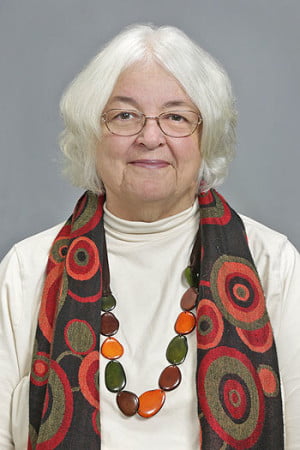A Wearying Confusion of Political Posturing

Photo: Tim Barnwell
Legislative News by Nelda Holder –
It just hasn’t been an uplifting month.
Maybe it was the internal wrangling between the North Carolina House of Representatives and the NC Senate over just how small to make the state’s budget for the coming two years—ignoring a sizeable surplus and pushing for tax cuts to curry favor while the state’s needs languish.
The state, as mentioned in last month’s column, has been operating under a budget approved for 2019, with some individual updates, because the Republican powers-that-be in the Legislature could not reach an agreement with Democratic Gov. Roy Cooper and state law actually permits such a regressive budget to be followed.
It was hoped that this year there could be more cooperation between the parties (and the egos), but so far even the Republican-majority House and the Republican-majority Senate can’t come up with a legislative budget to compare to the governor’s proposal, and, hopefully negotiate on.
Not THAT woman!
Maybe it was the petulant refusal of the Senate Agriculture, Energy and Environment Committee to approve the confirmation of the highly qualified Dionne Delli-Gatti as Secretary of the Department of Environmental Quality. (She would have been the first woman in that position, by the way. Not that that had anything to do with it.) It seems that Speaker of the House Phil Berger (R) and his party cohorts on the committee cared less about qualifications and more about a specific policy issue involving the proposed Mountain Valley Pipeline—a topic of raging proportions which ultimately is in the approval hands of the NC Utilities Commission—not DEQ. And according to an editorial in Raleigh’s News & Observer, the Acting Secretary was not allowed to speak at the meeting of the committee that voted to reject her.
“Democratic Sen. Mike Woodward’s request to ask her questions that could have cleared up the Republican’s concerns,” noted the editorial, was rejected. “This has been a mockery of the nomination process today,” Woodard was quoted as saying.
Already the Acting Secretary, Delli-Gatti had been nominated by Gov. Cooper to the DEQ position after serving as Director of Southeast Climate and Energy for the Environmental Defense Fund; six years at the Atlanta EPA Regional office as Congressional and Governmental Liaison; governmental service at the Ohio EPA and the City of Dallas, and as a private environmental specialist just following her stint in the U.S. Air Force. Oh—and she holds an MS in Environmental Science from the University of North Texas.
Cooper, by the way, seems to recognize environmental talent. The last appointment as director was Michael S. Regan, who left his NC position to become the head of the national Environmental Protection Agency in the new Biden administration.
So the governor wasted no time in making sure Delli-Gatti’s talents weren’t lost to the state. He immediately appointed her NC Clean Energy Director to work on administrative efforts to transition the state to clean, renewable energy.
Belaboring a difficult situation
Maybe it was the anti-abortion bill, being pushed hard in an attempt to give birth to new restrictions on a woman’s right to make her own decisions while trusting the privacy of her own doctor’s counsel. Acknowledging that abortion is a decision that many people think they have a right to dictate, I would set that aside in order to scrutinize an odd wrinkle in HB 435 that medical professionals might want to scrutinize carefully.
The first version of the bill contained this statement: “Nothing in this section shall be construed as placing an affirmative duty on a physician to inquire as to whether the sex of the unborn child is a significant factor in the pregnant woman seeking the abortion.”
Then in the bill’s new incarnation, that provision was struck and now the privacy between a woman and her doctor is invaded by a requirement that the physician must confirm that an abortion is not because of “the presumed race or sex, or the presence or presumed presence of Down syndrome.” Additionally, the physician must provide an ultrasound image and measurements along with the doctor’s signature attesting that the information in his/her report is true.
As pointed out by the ACLU (reported by WRAL-TV), such a provision would “compel the doctor’s speech, which violates the US Constitution.”
I think they just got an “F”
Or maybe it was the new Duke study (“School Vouchers in North Carolina 2014-2020”) by the Children’s Law Clinic of just what the Legislature has wrought over the past several years through a voucher program that defies the Constitutional mandate of childhood education in this state.
Appropriations, for example, have grown from $10 million in fiscal year 2014-15 to almost $135 million projected for 2026-27. The Legislature has continued to add funds, even though appropriated funds are not fully utilized. One of the report’s edifying charts illustrates many shortcomings of the North Carolina program, noting the requirements for private schools participating in voucher programs in other jurisdictions. In accreditation/state approval, regulated curriculum, certified teachers, state testing program, and regulated hours/days of school, of the 12 states reporting, nearly all check each of those requirements as mandatory—except for the state of North Carolina, which requires none.
And, according to The Progressive Pulse (NC Policy Watch), the following points apply to the voucher program:
- Demand has fallen short, resulting in unused funds yearly
- 92% of voucher students are attending religious schools
- The state places no requirements on voucher schools in terms of accreditation, curriculum, teacher licensure, or accountability
- Voucher schools are allowed to discriminate against students and their families on the basis of religion, disability, sex, sexual orientation, and gender identity
Looking on the brighter side
The legislation mentioned above has received a fair share of publicity around the state—perhaps with the exception of the Duke study and its import. But as the month crept along, there were other less sensational bits of state law being pondered, some of which are of straightforward benefit to residents of the state.
HB 71 (Living Donor Protection Act): This act would amend current statutes to protect donors of certain organ and marrow transplants from potential insurance discrimination, as well as provide an income tax credit for unreimbursed medical expenses that might result from such an act. It would also provide up to 30 days of paid leave to state employees and other state-supported personnel who serve as organ donors, and seven days for bone marrow donors. The bill currently is in the House Committee on Insurance.
HB 128 (An Act to Reemploy NC’s Workforce): As the state grapples with bringing businesses and employment back on line following the worst of the COVID 19 pandemic, this bill has been designed to help “reemploy North Carolina’s workforce” by setting up bonuses for accepting reemployment. The mechanism, however, is dependent upon approval from the US Department of Labor, because the funding is designed to tap federal funds allocated to the state during the Covid-19 crisis. A proposed $1,500 bonus would go to a person accepting reemployment within 30 days of the bill’s becoming law; for those accepting reemployment more than 30 days but less than 60 days after the bill becomes law, the bonus would be $800.
SB 135/HB 95 (Improve Anatomical Gift Donation Process): Ratified June 3 and presented to the governor, this act is designed to improve efficiency of organ, eye, and tissue donation provisions at the Department of Motor Vehicles. It requires donors who originally consented in another jurisdiction to consent to imprinting a gift statement or symbol on their NC Drivers License or ID Card, and clarifying when such an authorization may be considered revoked. Just a bit of helpful housekeeping which could mean a lot to someone in the future.
Nelda Holder is the author of The Thirteenth Juror – Ferguson: A Personal Look at the Grand Jury Transcripts.








